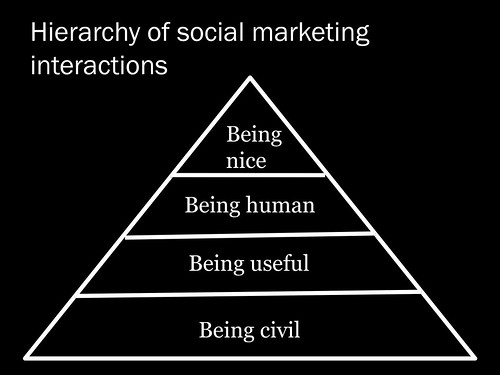A while ago I built a framework from a hodge lodge of ideas to think about social marketing with being useful as a foundational element. I was thinking about this as I read a number of Chinese news sources, the name Lei Feng had started coming up a lot recently. The reason why it was coming up was that it marked the 50th anniversary of Mr Lei’s death. The Chinese government was trying to use this date to encourage a greater sense of community and altruism in modern Chinese society including a Weibo hashtag with Monday having been ‘Learn from Lei Feng’ day.

Being useful exemplar – Lei Feng
Mr Lei was a 22-year old soldier who drove military trucks for a living. He was killed when a telegraph pole was felled by another truck and landed on his cab. This would have been just another sad but unnoteworthy accident, had not Mr Lei left behind a 200,000 word diary which was naturally full of content about how great the party was and documented an otherwise selfless life where he continually focused on being useful to those in his community.
Mr Lei was an orphan which meant that it was easier to use him posthumously as an example to others. March in Chinese schools is learn from Lei Feng month. Today Mr Lei is considered with mixed feelings by Chinese people; his selflessness is at odds with a laissez-faire market economy and the use of his life is viewed with some cynicism by many.
Regardless of the realpolitik surrounding the legacy of Lei Feng his focus on being useful could teach brands a lot about social media.
A lot of the time colleagues and clients come up to me and say we want something that’s ‘viral’ and I die a little inside. Its all about the brand rather than the brand interaction with the consumer.

I wish there were more brands that aspired to being useful. It’s simple to do, it opens a natural point for engagement because it fits nicely into the intent and context of the audience: – it builds long-term relationships rather than campaign statistics.
Being useful in action
A couple of great examples of being useful include the University of Westminster who provide tips on the shops and restaurants who offer students discounts.

Or the way Vodafone in the UK uses social media as the tip of the spear to address customer care issues.
I contacted Vodafone so that I could merge my identities into one, with one place to manage my devices on the Vodafone network. I got in touch by Twitter; they responded below:

I then completed a web-based form and was contacted by phone by one of the web team called Cate. She explained to me how they were going to address what I needed and resolved the problem without my having to hang on listening to hold music a la my previous experiences with 3UK or T-Mobile.
Now I am not suggesting that we all dress in olive fatigues; but it would be a good idea to lift ourselves out of what do we want – profits, fame, fortune, a Cannes Lion award and instead start thinking a bit more about the person on the other end of the communication. Being useful like Lei Feng and being open to the insights that this provides is also more likely to provide the inspiration over time for a really great word-of-mouth idea upon which you can start to built your path to fame and glory as a marketer.
More information
China to step up “Learning from Lei Feng” campaigns – People’s Daily
What China’s Talking About Today: Questioning a Maoist Icon – The Atlantic
Chinese Heroism Effort Is Met With Cynicism – New York Times
China promotes late altruism icon to bring hope – China Daily
Foreign students learn more about hero – China Daily
Lei Feng spirit to inspire new generation – China Daily
Complete works of late Chinese altruist published – People’s Daily
NPC deputy proposes Chinese Thanksgiving – China.org.cn
Lei Feng spirit personified in E China – China Daily
A guide to reviving the Lei Feng spirit – China.org.cn
China to stage programs promoting Lei Feng spirit – People’s Daily
